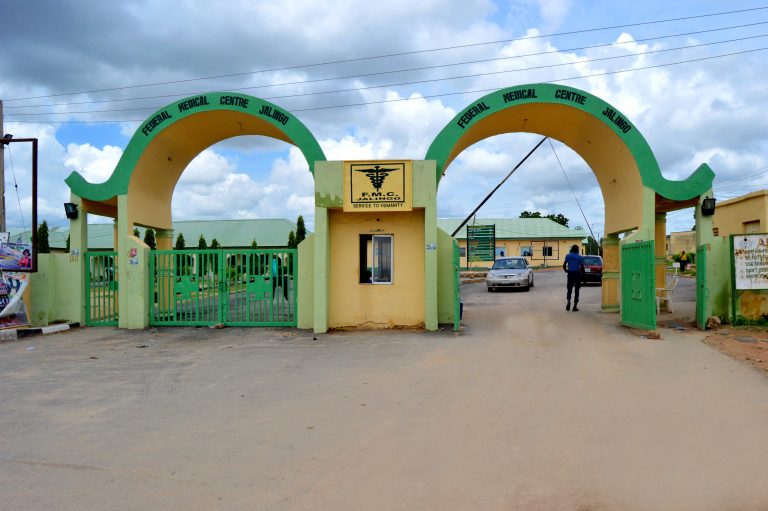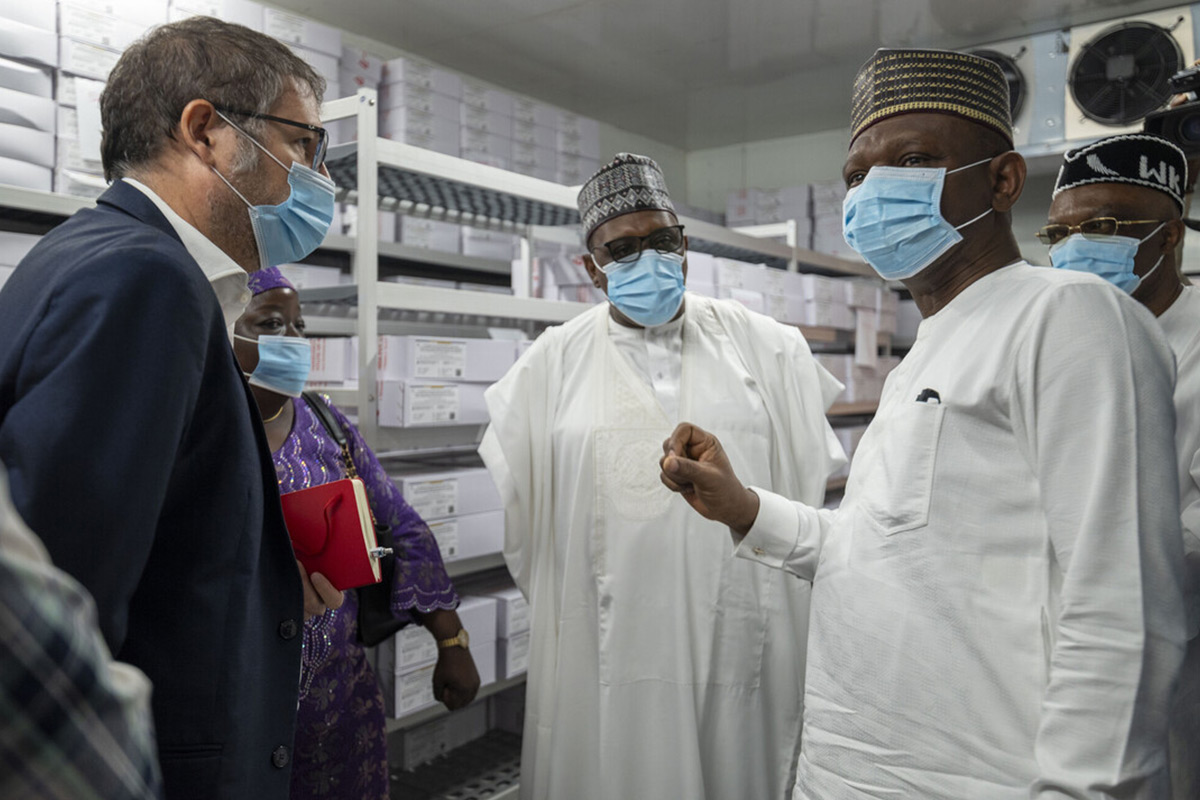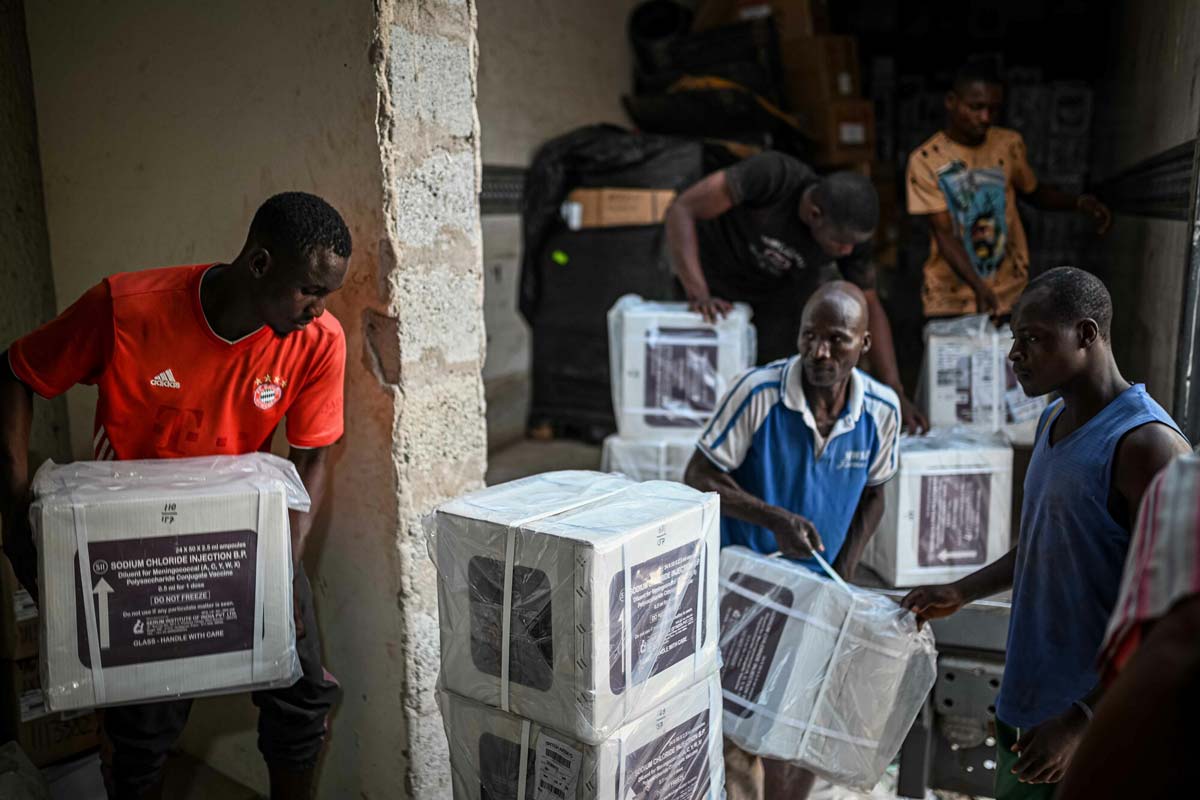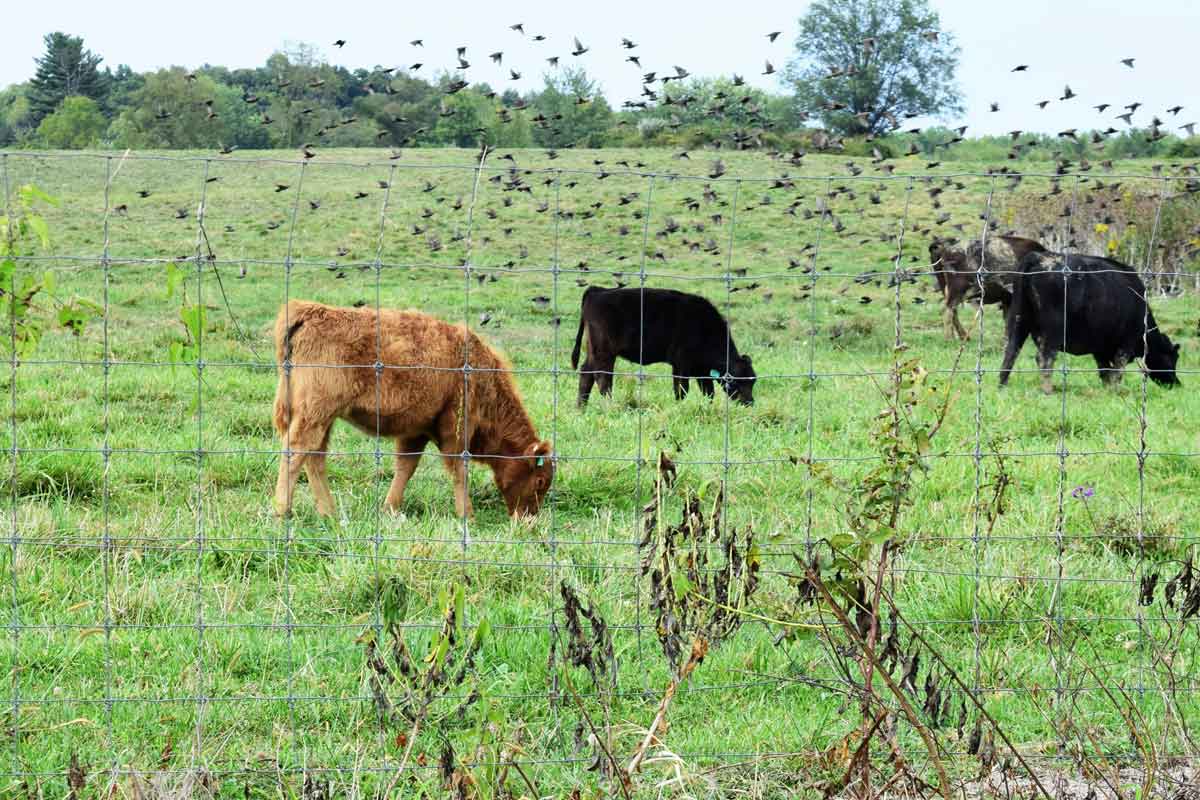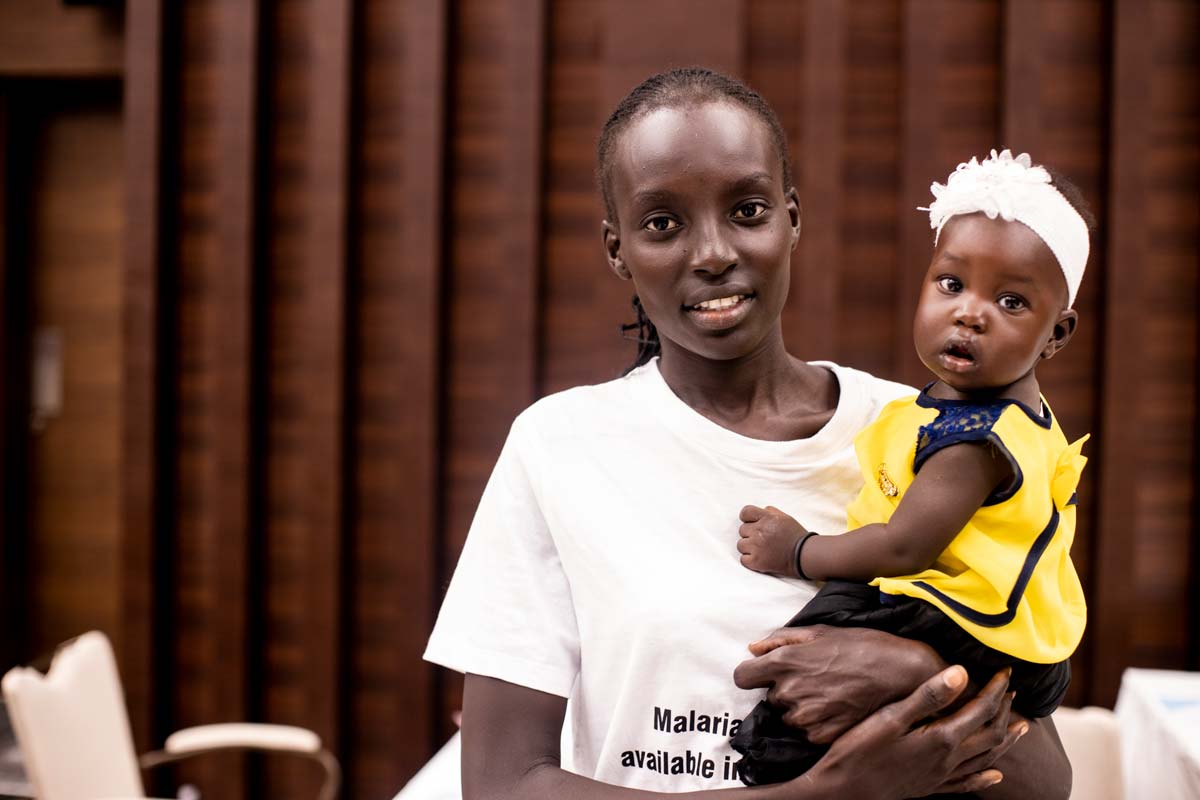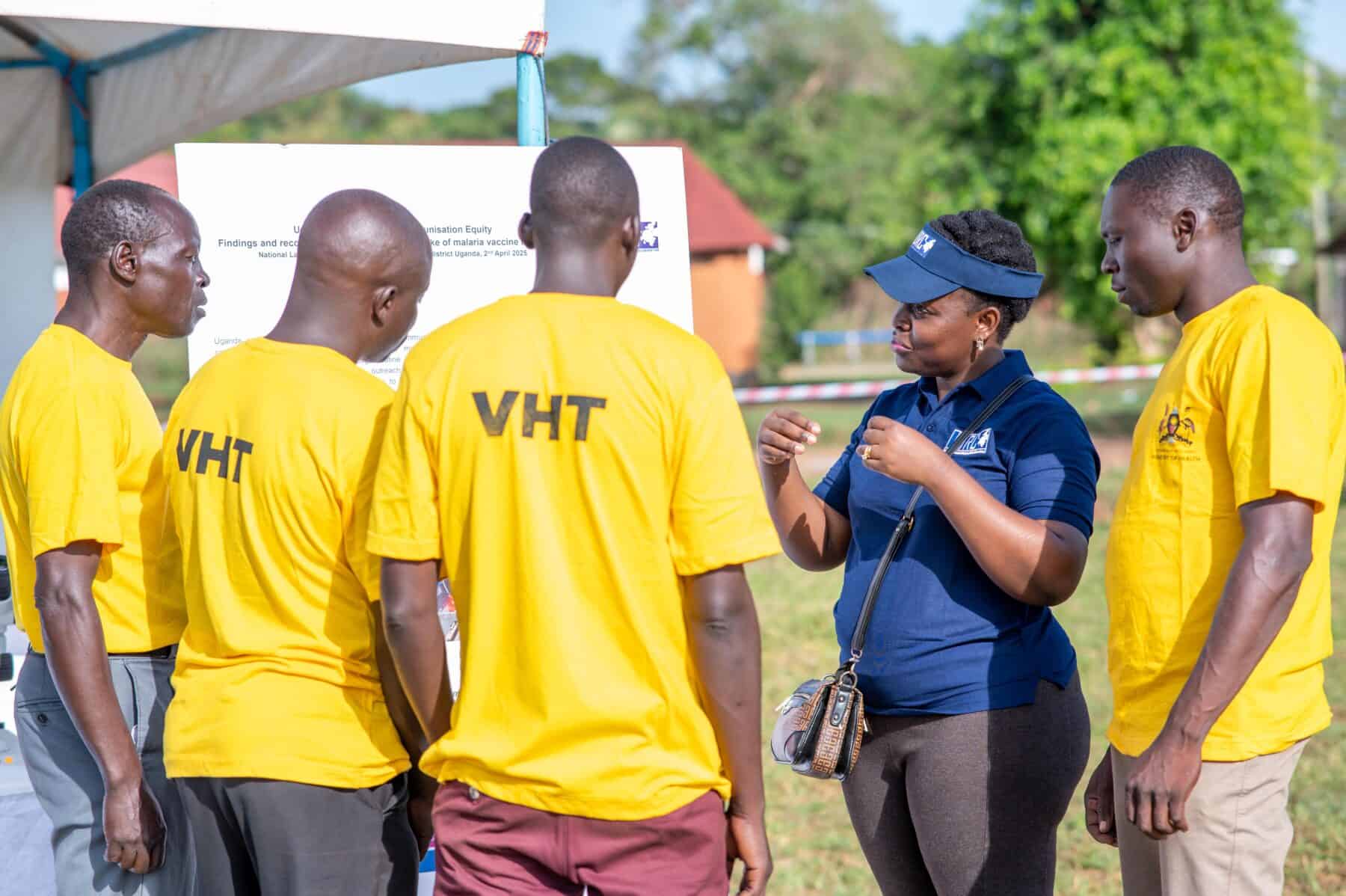Livestock herders, health authorities and butchers join forces to halt anthrax spread in Nigeria
When outbreaks of the deadly bacterial zoonosis crop up, it takes a multi-sectoral effort to prevent cross-species spread.
- 2 October 2023
- 8 min read
- by Afeez Bolaji
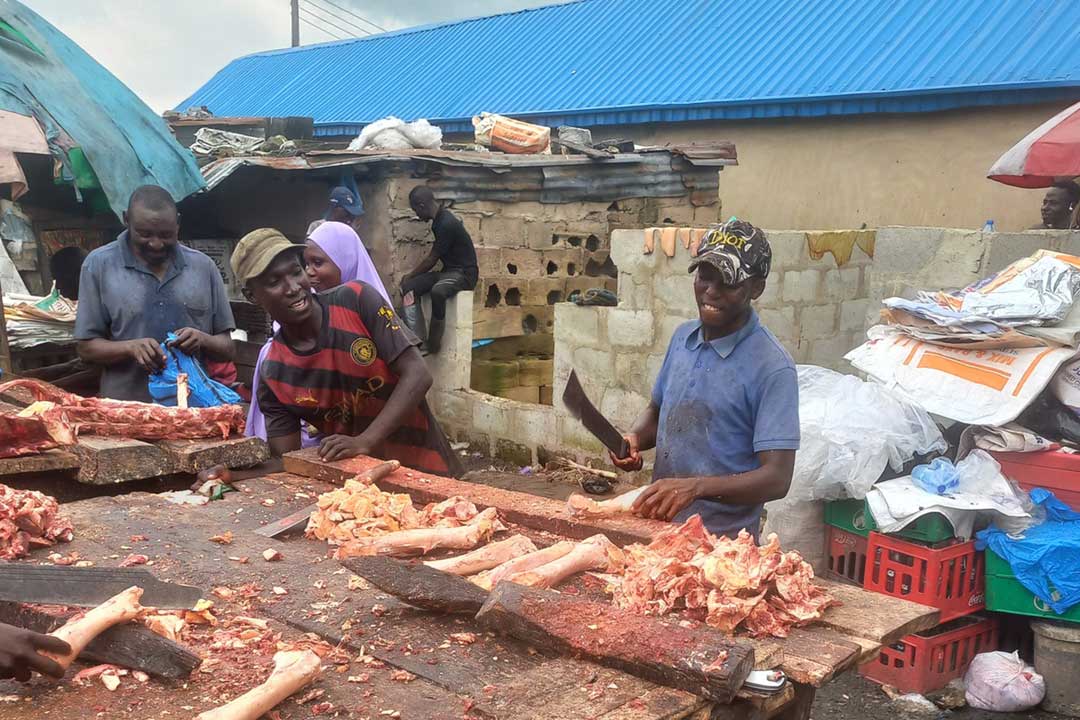
Livestock keeper Muhammad Musa, who herds his cattle at Paikon-Kore Grazing Reserve in Gwagwalada Area Council, Abuja, was born into the trade. Over the years, he has seen the bright and dark sides of rearing animals.
When cattle fall sick with infections and die, it can be as painful as losing a close relative, 31-year-old Musa said.
"When we noticed that a cow was bleeding from the mouth, nose and ear, we quickly isolated it and alerted the secretariat."
– Muhammad Musa, cattle herder
But when the infection in question is potentially zoonotic – that is, capable of being transmitted from animals to humans – the event is both a tragedy and a terror.
Musa was recalling an incident that occurred in mid-July. A cow on the reserve had bled to death. The suspected cause was anthrax, a disease caused by a spore-forming bacterium which typically infects ruminants such as cows, sheep, goats and pigs.

Credit: FCTA
Anthrax spores can survive in the soil for decades, and new outbreaks are often sparked following soil disturbances, like floods or landslides. The spores are then ingested by grazing animals. People handling sick animals or handling or ingesting contaminated animal products can get sick too – and symptoms in humans range from skin ulcers to bloody vomiting, drenching sweats and death.
The alarm over the dead cow was justified. Following an outbreak in neighbouring Ghana in June, health authorities in Nigeria were on red alert for signs of anthrax. Herders, abattoir operators and the public had been warned to look out for signs of the deadly disease.
"A team from the Agricultural and Rural Development Secretariat of the Federal Capital Territory Administration came to educate us on anthrax. They told us its symptoms in animals which include high fever, difficulty breathing and bleeding [from orifices] without blood clotting. When we noticed that a cow was bleeding from the mouth, nose and ear, we quickly isolated it and alerted the secretariat.
"We are also asking the government to keep infrastructure and emergency preparedness in place and not go back to sleep. There is a need for sustained action. The surveillance has to be active. We should not wait [to act] until it recurs."
– Dr Olutoyin Adetuberu, President, Nigerian Veterinary Medicine Association
"A team arrived shortly after, took samples and evacuated the carcass. Though the tests returned negative, the awareness has been helping us to better manage our livestock.
"About two weeks after that incident, another team of vets and health officials came with doses of anthrax vaccine and many cattle were vaccinated," Musa told VaccinesWork at the grazing reserve one morning in late September.
Anthrax hits Niger State
Nigeria Centre for Disease Control and Prevention on July 17 announced the index case of anthrax in the country after samples collected from species of livestock on a farm in the Suleja area of Niger State, north central, returned positive.
Eight animals had suddenly died on the farm, bleeding from external orifices without blood clotting. Measures were rapidly instituted to curtail the spread of the illness.
On July 24, the Agricultural and Rural Development Secretariat kicked off a four-week mass vaccination that would eventually reach 1.2 million cattle, sheep, donkeys and goats, including thousands of cows at Paikon-Kore Grazing Reserve, where Musa rears his cows. The programme, according to media reports, was targeted at covering livestock farms across the six area councils of the FCT, which share borders with Niger State.
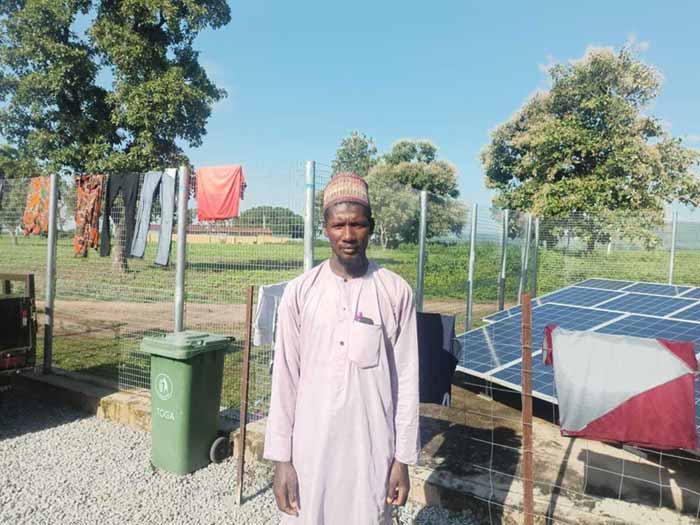
Credit: Afeez Bolaji
Hashimu Muhammad, a leader at the grazing reserve, said out of 16,000 cattle, more than 13,000 had been vaccinated.
"They promised us that the remaining cattle would be vaccinated in the second phase of the programme. I have more than 200 cows and about 70 of them have been vaccinated. None of our cattle has contracted anthrax. Our major challenge here is foot-and-mouth disease (FMD). Many of my cattle have contracted the disease. We need help. We need more vaccines; there are many cows to be vaccinated," he said.
Anthrax in Lagos – vaccine campaigns beyond
On July 30, Lagos, Nigeria's most populous state, announced that six animals tested positive for anthrax. The Permanent Secretary of the state's Ministry of Agriculture, Olatokunbo Emokpae, told the press that the infected animals were burnt and buried to prevent spread. The Federal Ministry of Agriculture and Rural Development also donated 50,000 doses of anthrax vaccine to the state.
"Members of the public must ensure that the source of their meat is from abattoirs recognised by the government. Anthrax is a public health issue and everybody must be involved. Agricultural department, health sector, information unit and non-governmental organisations need to do a lot of enlightenment."
– Dr Rotimi Adesanya, public health physician
The President, Nigerian Veterinary Medicine Association, Dr Olutoyin Adetuberu, said more states across Nigeria had embarked on mass anthrax vaccination of cattle with the support of the association.
"We have been creating awareness. We have had several radio and television engagements with the public and people phoned in to ask questions on the disease and preventive measures to take. Our members have also joined governments in their various states to carry out mass vaccination. It has been done in the FCT, Yobe State and recently in Imo State. We have had jingles in local languages to create awareness on the disease and I think that is what has helped us to nip it in the bud.

Credit: Adetuberu
"We have not had incidences beyond Niger State where the index case occurred, and in Lagos. All other suspected cases returned negative. The person on whose farm the index case was recorded in Niger State said he was gifted an animal during Sallah [Muslim festivity held late June] period and he introduced it into his flock. That was how the case occurred.
"We have been going to abattoirs to talk to workers. We have been talking to herders and livestock farmers' associations. We have also been engaging state governments to make anthrax vaccines available in their various states, especially those that border our neighbouring countries, for vaccination of local herds. We are doing all of these to ensure that anthrax does not become an epidemic in Nigeria," she said.
Adetuberu said the association also advised people to buy their meat from recognised abattoirs, avoid eating animal skin imported from other countries – at least for now – and maintain a high level of hygiene to prevent anthrax infections.
"In humans, anthrax infects the skin and digestive tracts. People should avoid contact with sick animals as much as possible. We are also asking the government to keep infrastructure and emergency preparedness in place and not go back to sleep. There is a need for sustained action. The surveillance has to be active. We should not wait [to act] until it recurs," she added.
Have you read?
A public health physician and medical director, Federal College of Education, Lagos, Dr Rotimi Adesanya, advised livestock farmers to ensure their livestock are periodically examined by licensed vets.
"Members of the public must ensure that the source of their meat is from abattoirs recognised by the government. Anthrax is a public health issue and everybody must be involved. Agricultural department, health sector, information unit and non-governmental organisations need to do a lot of enlightenment. It is a multi-sectoral responsibility and every stakeholder must be on their toes," he said.
Shoring up defences at an Ogun abattoir
Clad in a white gown and yellow boots, Dr Ayo Adelaja sank into a plastic chair, stretching out his legs. He looked up some information on his mobile, while the sweat beading on his forehead gradually evaporated.
It was about 10:00 on Friday, 22 September. The Ogun State veterinarian had just returned to his office from another round of inspections at the Kara Abattoir – an age-old, sprawling cattle market and slaughterhouse sitting between Lagos and Ogun state borders, southwest Nigeria.

Credit: Afeez Bolaji
Butchers say that an average of 60 cows are slaughtered in the abattoir daily to meet demands from both states. If anthrax-contaminated meat slipped the net of surveillance and made its way into public markets, human lives would hang in the balance. Vets like Dr Adelaja are a vital safety valve.
The Zonal Veterinary Officer overseeing abattoirs in the district, Dr Oduloju Tokunbo, calls the campaign to keep Nigerians safe from anthrax a "concerted effort".
"The government is mobilising all relevant stakeholders and getting feedback through the Department of Veterinary Services. Vets and animal health scientists are on standby at abattoirs to carry out inspection and report back to the department. We also meet with butchers regularly to educate them on why inspection is important and the need to maintain hygiene. We educate them on anthrax and other diseases and where we need to resort to enforcement we don't compromise.
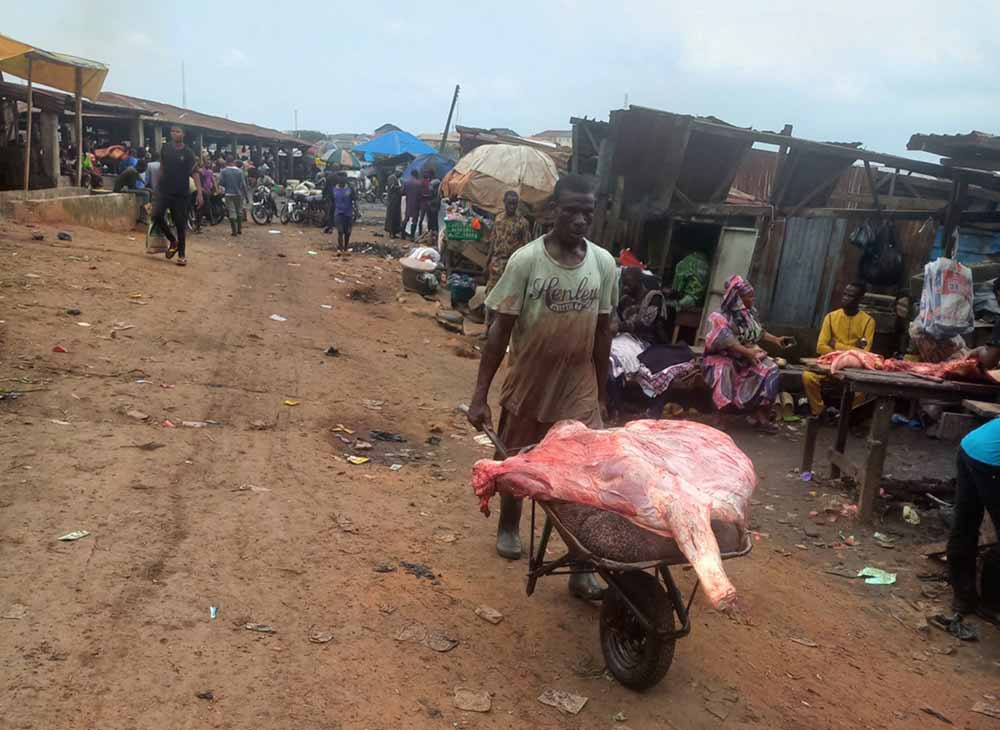
Credit: Afeez Bolaji
"Emergency centres have also been opened up across the state. We organise sensitisation programmes in communities and partner with One Health Initiative to carry out campaigns. We are not leaving anything to chance," Tokunbo told VaccinesWork.
"We organise training sessions for our members (butchers) on the best practices and invite health experts to educate us. With anthrax we have stepped up the sessions," said Babalola Akeweje, the General Secretary at Kara Abattoir.
"Vets and animal health scientists are on standby at abattoirs to carry out inspection and report back to the department. We also meet with butchers regularly to educate them on why inspection is important and the need to maintain hygiene."
– Dr Oduloju Tokunbu, Zonal Veterinary Officer
However, the government and traders have a pressing task before them to create the hygienic conditions they understand they need to operate securely. The dirt road that snakes to the market is ridden with mud and waste whenever it rains. Akeweje admitted that the road needs rehabilitation.
"We contribute money among ourselves to do palliative work every year in addition to paying tax. The government has promised to construct it but we cannot wait forever. A tarred road is part of what we need for a clean environment," he said.
